In honor of National Public Health Week, we asked a few team members, “What Does Culture Mean to You”?
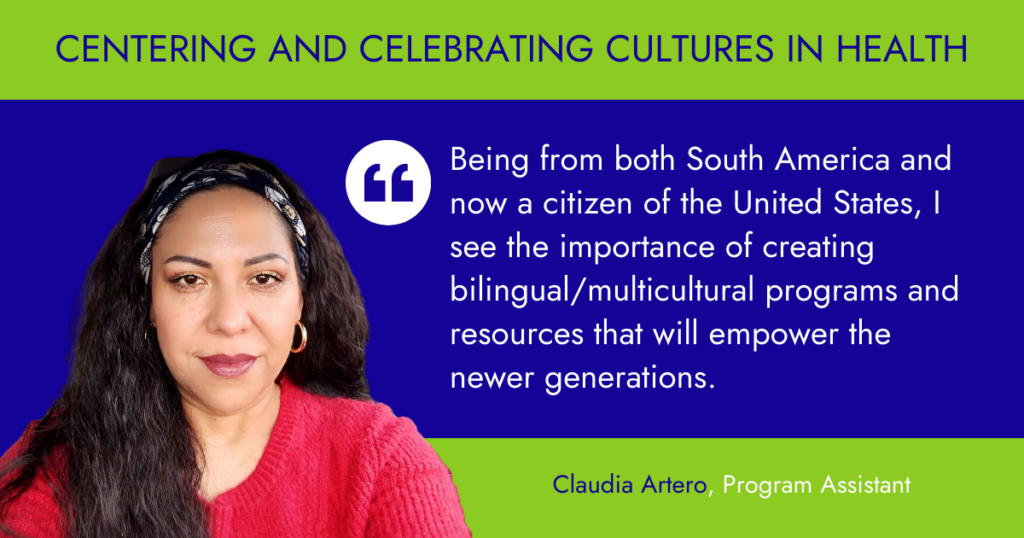
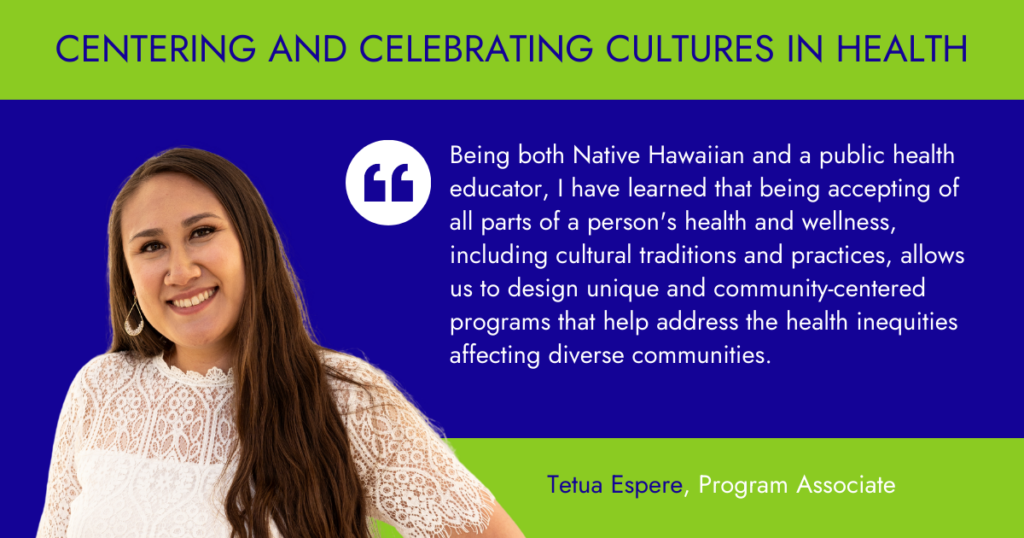
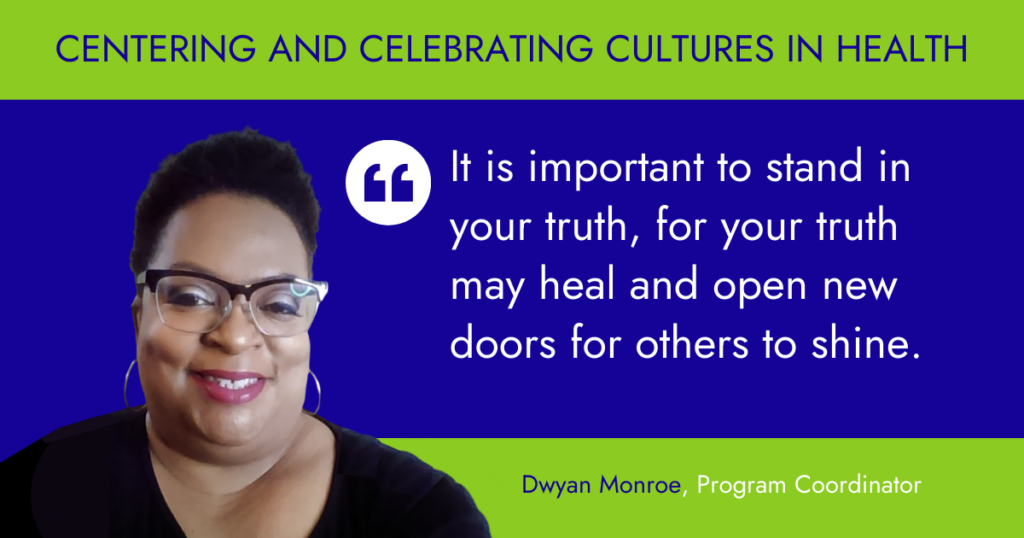
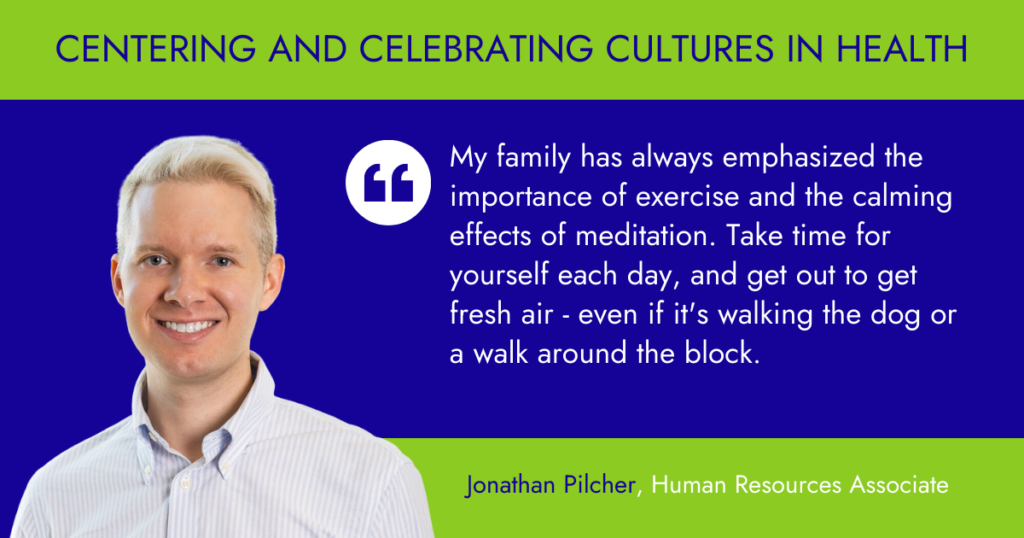
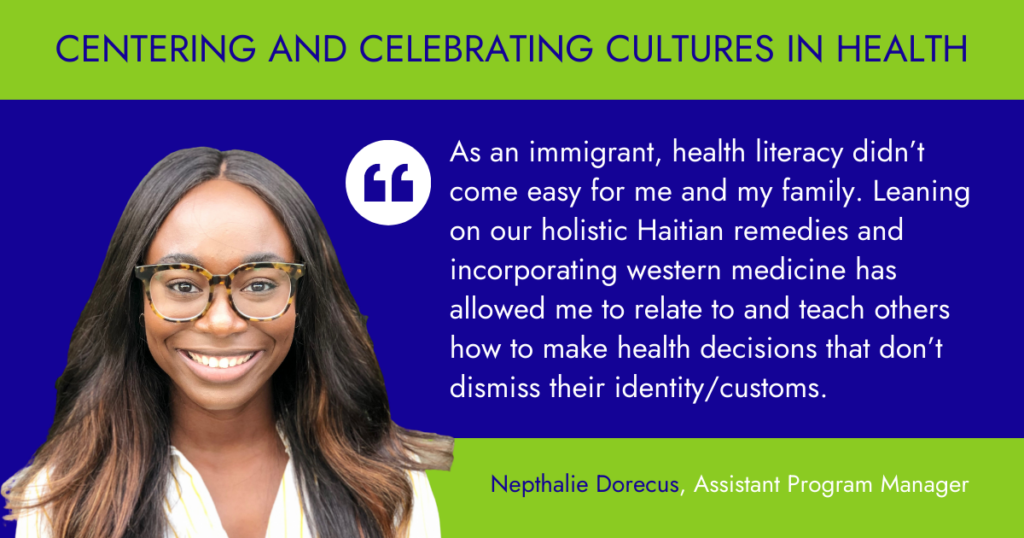
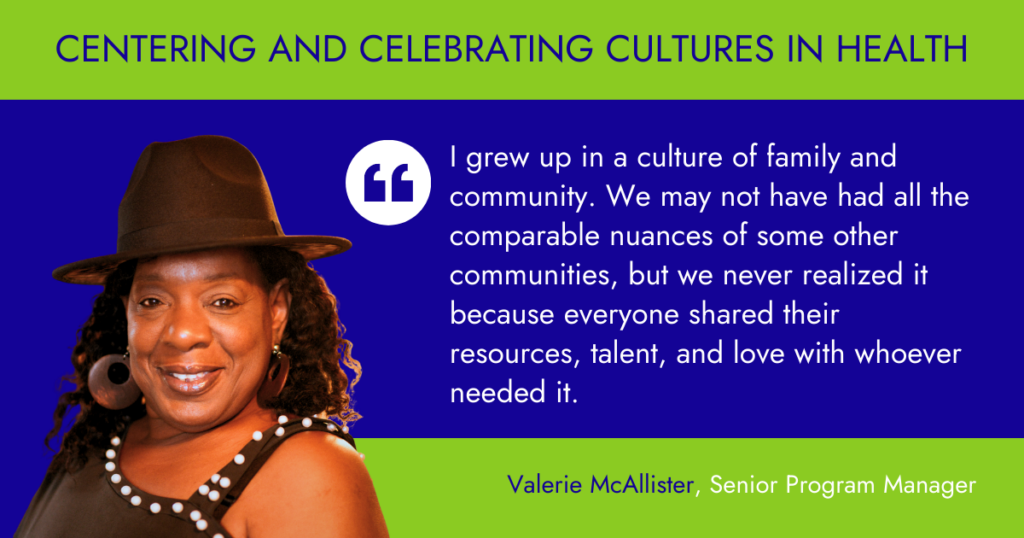
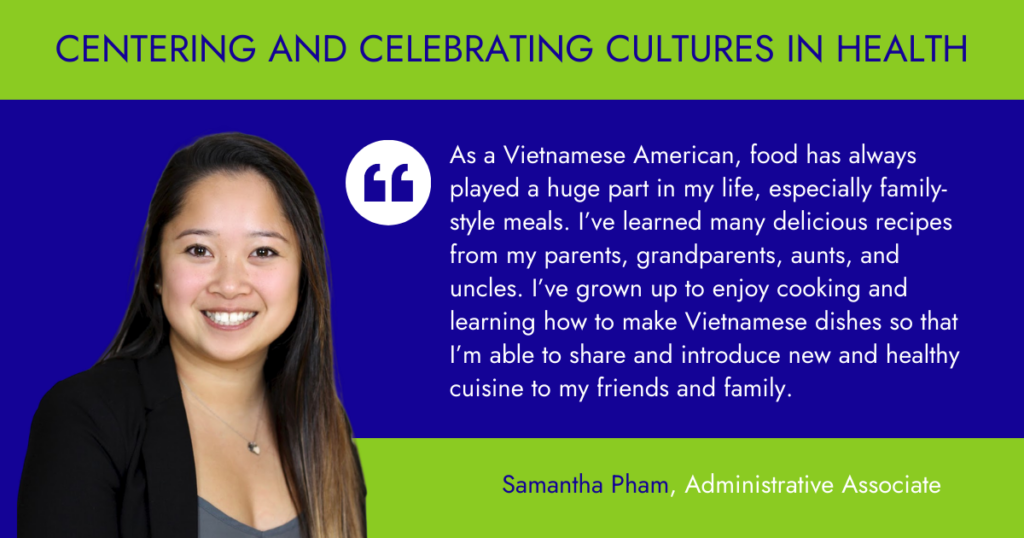
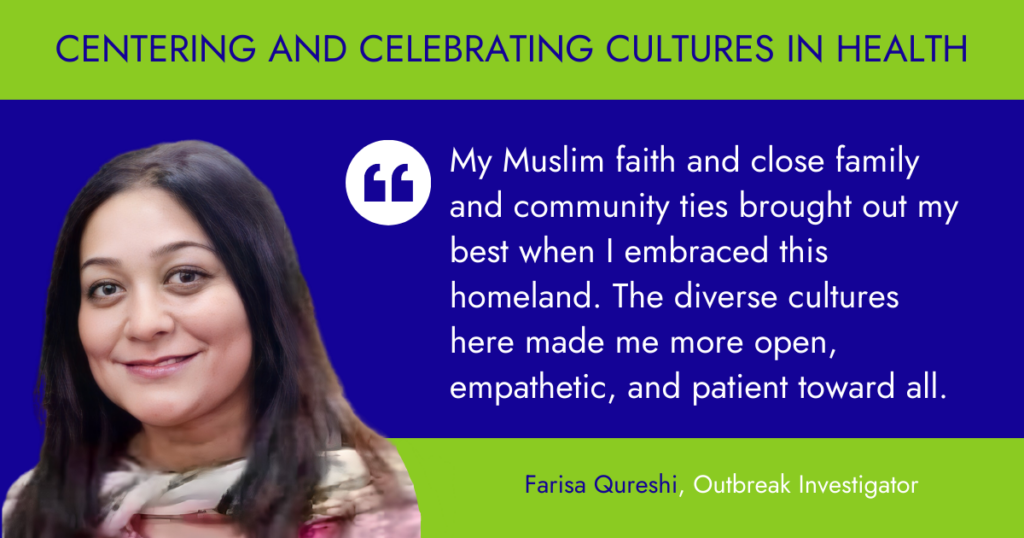
In honor of National Public Health Week, we asked a few team members, “What Does Culture Mean to You”?









National Public Health Week (NPHW) recognizes and celebrates public health professionals in the nation. April 3-9, 2023, marks the 28th NPHW organized by the American Public Health Association (APHA). This year’s theme is “Centering and Celebrating Cultures in Health.”
IPHI acknowledges community health care needs can vary based on cultures, experiences, and environments. We also recognize the beauty of different cultures and the importance of cultural competence in health care. A culturally competent health care system can help improve health outcomes and quality of care and help eliminate racial and ethnic health disparities.
We invite public health professionals, community organizations, and the community – to celebrate cultures in health this NPHW!
Watch this NPHW WTVR-6 news segment, “Community Health Workers Improving Health in Underserved Communities.”
IPHI Daily Themes
Monday: Community
Tuesday: Accessibility
Wednesday: Mental Health
Thursday: Food and Nutrition
Friday: Rural Health
Visit our social media pages for more information on NPHW 2023 and to explore the different cultures that create the IPHI team, visit.
Monday, April 3 – Community: Community Health Workers (CHWs)
The word “community” holds a lot of power. Community is not only where we are. It’s our connection with others who share similar interests, attitudes, and goals. In short, it’s a sense of togetherness and unity. As the bridge between the health system and under–resourced communities, community health workers (CHWs) take community to heart. CHWs typically live in the areas they serve, giving them the unique ability to bring health information where it is needed most. CHWs are not just a part of clinical teams, but they are a critical component of clinical teams. As a recognized leader in developing the CHW workforce, we invite you explore our CHW initiatives.
Read “Community Health Workers: Behind-the-Scenes Community Heroes” by IPHI Senior Program Manager Valerie McAllister.
Tuesday, April 4 – Accessibility: Equity and Health in All Policies (EHiAP)
Accessibility is crucial in public health because it makes sure that all individuals have equal access to the resources and services that promote their health and well–being. When developing policies and practices in health care, sectors indirectly linked to health are often left out of the equation. Doing this, however, limits the health opportunities for everyone in the community. The same way that many factors shape an environment, many factors can shape health outcomes. When access to health services, nutritious food, safe housing, and other essential resources are limited, it can lead to glaring disparities between communities. Equity and Health in All Policies (EHiAP) is a collaborative effort to help local and state governments incorporate health considerations into decision–making across all sectors and policy areas. Download our EHiAP framework to see how IPHI provides technical assistance on EHiAP.
Wednesday, April 5 – Mental Health: Mental Health First Aids CHWs Training
Often times mental health is overshadowed by physical health, although it’s just as important. Mental health affects everyone as it involves our emotional, psychological, and social well–being. Yet, mental health stigma still persists and deters individuals from seeking help. According to the World Health Association (WHO), the global prevalence of anxiety and depression spiked by 25% in the first year of the COVID–19 pandemic. Disruptions in mental health services is one of the contributors that leave huge gaps in care for those who need it most. Prevention, early detection, and treatment of mental health conditions can lead to improved physical and community health. Last year, IPHI hosted our first Mental Health First Aid training for CHWs, conducted by a CDC trainer. Currently, we are working with partners to develop another training to support mental health efforts, which can be expected later this year.
Thursday, April 6 – Nutrition and Food: Prince George’s County Food Equity Council (PGC FEC)
In 2021, 33.8 million people lived in food–insecure households in the U.S. Food insecurity is a socially rooted and systemic issue that has only grown in prevalence since the COVID–19 pandemic. When individuals struggle to meet their basic needs, there is an increased risk of food insecurity. The accessibility and affordability of nutritious food can influence long–term health outcomes, limiting food-insecure households from living healthy and active lives.
Food insecurity is a worldwide public health issue, and addressing it locally is only a starting point. Prince George’s County Food Equity Council (PGC FEC) develops and support policies, approaches, procedures, practices and initiatives that create systemic change in Prince George’s County, Maryland’s local food system. As an incubator and fiscal sponsor, IPHI backs the FEC as a voice for county residents at the policymaking table. Click here to learn more about IPHI’s food systems initiatives.
Friday, April 7 – Rural Health: Rural Multiple Sclerosis (MS) Solutions
Many rural populations experience significant health disparities compared to urban populations. The rural health disparities include geographic isolation, lower socioeconomic status, higher rates of health risk behaviors, limited access to healthcare providers and facilities, and limited job opportunities. In 2022, IPHI expanded its focus to include support for people living with multiple sclerosis (MS) and medical providers in rural areas. Through the Rural MS Solutions initiative, we are able to provide support and resources for individuals with MS who live in rural areas and face unique challenges in accessing healthcare. Our team works to improve access to care, provide education and resources, and engage with community partners to create a supportive network for those affected by MS in rural areas.
FOR IMMEDIATE RELEASE – March 6, 2023
For More Information, Contact:
Communications Director Taya Jarman, APR
202-747-3541 [email protected]
(Richmond, VA) — The Institute for Public Health Innovation (IPHI) is pleased to announce its new website and brand refresh on March 6, 2023. IPHI is a nonprofit that develops multi-sector partnerships and innovative solutions to improve the public’s health and well-being across the District of Columbia, Maryland, and Virginia. Our work strengthens health systems and policy, enhances conditions that promote health, and builds community capacity to ensure equitable health opportunities for all.
The new site www.institutephi.org, prioritizes accessibility and includes improved navigation and updated copy, emphasizing inclusivity and representation throughout the site. IPHI was started in 2009. Since then, the organization has grown notably in size and industry offerings. To illustrate IPHI’s new expansion, the team worked with Fahrenheit Creative Group, LLC, to enhance the brand and digital footprint.
“Our organization ensures equitable health outcomes and access to resources for all residents throughout the region. Our new website was redesigned with that purpose in mind,” said Michael E. Rhein, IPHI President and CEO. New features include a training catalog, information on regional initiatives, and highlights of IPHI’s broad range of services and focus areas. The website is ADA-compliant and can serve users with various disabilities, including but not limited to people with ADHD, blindness, color blindness, and seizures. IPHI is working with accessiBe, a technology company working to solve the problem of web accessibility through AI, to ensure the site remains accessible to all users.
The brand refresh emphasizes IPHI’s dynamic and growing ambition, building on more than a decade of experience shaping innovative public health practices. Communications Director Taya M. Jarman added, “When developing the site and refreshed marketing materials, it was important that the images reflect our regional community and provide equitable access for all. This refresh and website were designed to reflect our mission and values.”
For more information on IPHI’s latest focus areas, services, and initiatives, visit www.institutephi.org.
###
About Institute for Public Health Innovation (IPHI)
IPHI develops multi-sector partnerships and innovative solutions to improve the public’s health and well-being across the District of Columbia, Maryland, and Virginia. IPHI’s work strengthens health systems and policy, enhances conditions that promote health, and builds community capacity to ensure equitable health opportunities. Nationally, IPHI is one of over 40 public health institutes and a member of the National Network of Public Health Institutes. For more information about IPHI, visit: www.institutephi.org and follow IPHI on LinkedIn, Facebook, Twitter, and Instagram | @InstitutePHI.
Proposal Due By: March 17, 2023
Organizational Background
Founded in 2009, the Institute for Public Health Innovation (IPHI) is the official public health institute serving the District of Columbia, Maryland, and Virginia and one of over 40 such institutes within the National Network of Public Health Institutes (www.nnphi.org). IPHI creates partnerships across sectors and cultivates innovative solutions that improve health and well-being for populations and communities across the region. With an emphasis on health equity, our work strengthens service systems and public policy; enhances the environments and conditions in which people live, age, work, learn, and play; and builds organizational and community capacity to sustain progress.
Public health institutes fulfill a unique and important role in their states and communities, serving as cross-cutting non-profit resource organizations that collaborate with various partners to improve community health. Underscoring the need for a public health institute in the region, IPHI has grown rapidly since its creation. Areas of focus for IPHI’s work include leading coalitions aimed at policy, systems and environmental change; strengthening the public health workforce, and expanding the capacity of government and community organizations for effective public health action, among other priorities. Of particular note, IPHI has played an integral role in the pandemic response in the region, recruiting, training, and deploying over 1,200 public health professionals who have assisted in protecting communities from COVID-19. IPHI currently has 100 staff located across the region and an operating budget of approximately $15M.
Project Overview and Goals
IPHI is seeking a consultant to assess and enhance its employee experience, business operations, and organizational structure to support continued growth, innovation, and effectiveness. The organization has achieved significant expansion over the past three years and is at a key juncture in its development. IPHI intends to engage an experienced outside expert to work collaboratively with staff to identify effective aspects of IPHI’s current organizational structure, recommend enhancements, and help implement a forward-facing blueprint for strengthening the company’s teams, roles and internal relationships, and organizational culture, including considerations for decision making, incentive structures, and business processes.
Scope Of Work
PHASE 1 – Assessment of Current Organizational Structure and Culture: IPHI would like to learn from its staff how its current organizational structure is serving their needs and the mission and goals of the organization grounded in an equity lens. Internal perspectives will be aligned with effective organizational approaches to highlight opportunities to improve IPHI’s structure, culture, and operations.
This assessment should include but not limited to:
Deliverable: Blueprint Outlining Organizational Strategies and Recommendations to Enhance IPHI Structure, Workflows, Processes and Culture
PHASE 2 – Organizational Improvement Preparation, Plan, and Rollout: After agreement on organizational improvement priorities/strategies, IPHI would like support to operationalize approved plans and prepare the organization for proposed enhancements and change processes. In order to support such a critical rollout, this implementation should include (not an exhaustive representation):
Deliverable: Rollout and Implementation of Organizational Improvements Based on Plan Priorities and Metrics
PHASE 3 – Implementation Activities (optional)
IPHI may benefit from additional support during the implementation phase with project management, planning, process facilitation, and training activities. Applicants should express their interest and capability to assist with this phase and a general outline of approach.
Deliverables: Implementation Support Activities and Mid- and Long-term Plans.
Desired Education, Experience, Knowledge, Skills, and Ability
This RFP requires a varied set of skills, experience, and flexibility. Interested applicants including both independent consultants and consulting companies are encouraged to inquire and apply even if they don’t possess all qualifications.
Project Timeline and Estimated Budget
Open RFP Period: February 24 – March 17, 2023
IPHI reviews applications and selects contractors: March 17 – 27, 2023
IPHI’s Desired Timeline for Completion of Phase 1: April 3 – June 2023
IPHI welcomes proposals of all cost ranges that reflect reasonable cost and value. We anticipate competitive Phase 1 budget will fall in the range of $15,000 – $30,000. Applicants should provide a proposed budget for Phase 1 based on IPHI’s desired timeline above. Additionally, applicants should include a proposed budget and timeline for Phase 2 that aligns with the strategy in Phase 1. Phase 3 budgets are optional, though we request inclusion of information to help IPHI understand how pricing would be determined. We would like to start this engagement no later than March 31, 2023.
Selection Criteria
IPHI will select the consultant based on the following weighted consideration: Proposed approach, methods and timeline (40%); experience and past performance (40%); and proposed budget (20%).
How to Apply
Interested applicants should send an introductory email along with a 3- to 5-page overview of the proposed approach, proposed budget, and applicant’s qualifications and experience along with three references and past performances summarizing the scope of work to [email protected]. Please title email heading: Organizational Development Proposal: (Insert the name of consultant or consultant group). Applicants located in the District of Columbia, Maryland, and Virginia region are preferred.
We are happy to review questions by email and/or to schedule a time to discuss any questions. We will request a virtual interview with finalists.
For more information, visit: Organizational Development Counsultant
Giving Tuesday 2022: Join Us In Our Fight for Healthy and Equitable Communities
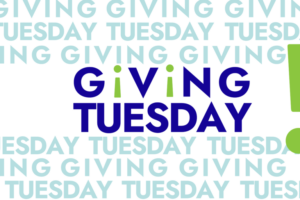
Join Us In Our Fight for Healthy & Equitable Communities
IPHI strengthens health systems and policy, enhances conditions that promote health, and builds community capacity to ensure equitable health opportunities for all. We believe all people and communities should have equal opportunities to live and be healthy.
This Giving Tuesday, consider a gift to IPHI as we work to dismantle health inequities and strengthen communities in the District of Columbia, Maryland, and Virginia. IPHI’s work includes:
Here are some of our targeted initiatives and coalitions in the region:
District of Columbia
The DC Healthy Housing Collaborative is a multi-sector coalition seeking to address substandard housing conditions that contribute to significant health issues affecting District of Columbia residents. The DC Healthy Housing Collaborative envisions a DC where all housing promotes health, wellness, and safety and is affordable. DC will be a city where all are welcome and can thrive in strong, resilient, and well-resourced communities.
Maryland
Prince George’s Food Equity Council works to improve the public health and community well-being of all who live, work, study, worship, and play in the County. The FEC believes every resident, regardless of race, class, or zip code, should easily access healthy, affordable, culturally appropriate, and locally produced foods. FEC partners and volunteers work to increase food storage and distribution, improve access to food assistance resources, and increase access to healthy food for food-insecure residents at risk for diabetes through enrollment in our food-as-medicine program, Prince George’s Fresh.
Virginia
ImmunizeVA is a statewide immunization coalition that strives to protect the health and well-being of all Virginians by achieving and maintaining complete immunization protection through education, advocacy, statewide collaboration, and the promotion of equity.
Please consider a gift to help dismantle health inequities and strengthen our region.
Maryland state employees: Charity Campaign (MCC) – 46-3039129
Virginia state employees: Commonwealth of Virginia Campaign (CVC) – 201412
A Statement from the Institute for Public Health Innovation Staff and Board of Directors:
Last year, Virginia made history as the first southern state to declare racism as a public health crisis. It was an essential step in the long and challenging work of undoing institutional racism in Virginia’s policies, systems, structures, and norms. Then last week, The Washington Post brought to light a troubling perspective that underscores the challenges and urgency of the work ahead. Understanding racism and acknowledging its central role in creating the profound health inequities in our region provides opportunities to create the intentional change necessary to truly make a difference in the public’s health.
This work begins with developing a shared understanding of how racism, particularly institutional racism, is defined. That work progresses by acknowledging the large body of evidence that illuminates the effects that racism has on individual and community health. Racism creates obstacles for Black and Brown Virginians to achieve their best health and for all of us to collectively address the stark disparities and inequities in health outcomes. Of course, Virginia is not unique in its history, or the ways that blatant and concealed racism affects the public’s health. This formal acknowledgment is one that many state and local jurisdictions have recently made to demonstrate their commitment to take meaningful action to address health inequities.
While racism and gun violence are highly politicized, that does not take away from the evidence that these are significant public health issues. In addition, efforts to address them promote values that are important to share and reflect what the public health field is all about — humanity is precious and that everyone deserves health and well-being. Those in leadership positions are responsible for combining empathy with science to solve social problems and protect and promote the public’s health.
After the Virginia resolution was passed, we partnered with the Voices for Virginia’s Children and the Virginia Public Health Association to host a 4-part webinar titled, “Racism is a Public Health Crisis in Virginia .” We encourage others to view the series for educational purposes and to identify ways to get involved. In the future, we intend to facilitate further discussions to highlight practical strategies and actions to continue to make progress. We are deeply committed to intentional action in collaborating with our many current and future partners.
In closing, we express our ongoing support for the dedicated professionals at the Virginia Department of Health (VDH) who work tirelessly to promote health and advance health equity, often without recognition. VDH is an essential partner to our organization. Together, we have accomplished a lot to improve health outcomes. We look forward to working alongside the agency as we strive for equitable health opportunities for all Virginians.
We hope this moment can fuel continued commitment among governmental and non-governmental organizations to work together to take another step forward in addressing racism as a public health crisis.
The Institute for Public Health Innovation (IPHI) was identified as a public health institute example to follow, along with the Public Health Institute of Metropolitan Chicago. The article describes, “Public health institutes are nonprofit organizations that support efforts toward a more stable, robust, public health infrastructure to address health and social needs in the context of community amid intolerable barriers to good health along racial, ethnic, and other divides.”
Moving forward, New Jersey hopes to establish a state public health institute. Read more here, and be sure to check back for the Foundation’s request for proposals!
https://www.africanelements.org/news/how-can-we-prioritize-equity-in-public-health-rwjf/
Giving Tuesday 2021: Join Us In Our Fight for Healthy and Equitable Communities
This Giving Tuesday, consider a gift to IPHI as we work to dismantle health inequities and strengthen communities in the District of Columbia, Maryland, and Virginia.

The Institute for Public Health Innovation (IPHI) works to improve health systems and policies, enhance conditions that promote health, and build community capacity to ensure equitable health opportunities for all. We believe that all communities should have equal opportunities to live and be healthy. Here are highlights of some of the programs and initiatives we’ve supported in 2021.
Learn more about IPHI and how your donation can propel IPHI into 2022. For more information including ways you can get involved, visit here.
The Report Offers Recommendations to Support Local School Wellness Councils in An Ever-Changing Environment
The Institute for Public Health Innovation (IPHI) and Montgomery County Public Schools (MCPS) are excited to announce the Supporting the Sustainability of Local School Wellness Council: COVID-19 Wellness Needs Assessment results. The report was developed in collaboration with Community Science, the project team’s evaluator.
Since 2016, IPHI has partnered with MCPS health to build the capacity of Local School Wellness Councils (LSWC) to reduce childhood obesity and improve student wellness. These local wellness councils have guided schools to identify their wellness needs and develop goals to enhance student health and well-being.
Due to COVID-19, project partners developed a survey to assess how active schools have been engaged in health and wellness efforts this past school year and to gather information on how to best meet schools’ health and wellness needs. This report summarizes the successes, challenges, and lessons learned from efforts to support LSWC’s and offers recommendations to sustain the future work of the LSWCs.
During this past school year, LSWC’s provided critical support to students and teachers around wellness. Schools offered fitness challenges and mindfulness sessions to support students emotional well-being. Schools hosted both virtual and outdoor opportunities and maintained connections with their students and families through home visits or a “walk-by” and virtual chat-and-chew sessions. In addition, schools were able to provide families with fresh produce and food assistance resources due to the significant economic impact COVID-19 had on family’s ability to access healthy foods.
Throughout the past four years, the project team has successfully implemented local school wellness councils in 110 schools, reaching 81,016 students, and developed the first School Wellness Toolkit in the state of Maryland that guides schools in how to create a local school wellness council.
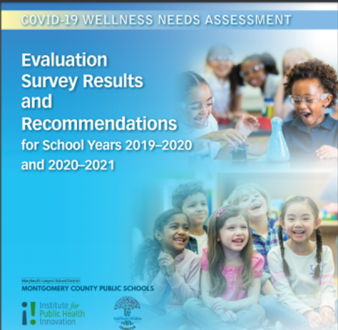
To learn about their accomplishments, click here. Funding for the assessment and report was made possible by the support of the Healthcare Initiative Foundation.
August is National Immunization Awareness Month. ImmunizeVA is celebrating in a number of ways.
In July, the coalition announced its newest mascot, Tracker. To celebrate Immunization Awareness Month, the coalition is hosting a Tracker-themed coloring contest. Expect to see her tracking vaccines across Virginia!
In August, Virginia Governor Ralph Northam issued a governor’s proclamation to recognize Immunization Awareness Month. ImmunizeVA also launched an ‘Our Shot’ social media campaign.
Upcoming Coalition events include:
Look out for daily social media content and weekly educational resources around different vaccine themes each month.